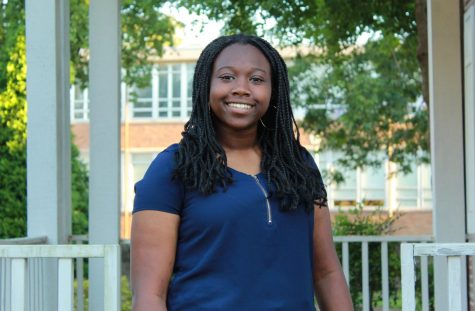Jira: The Black News Channel fails to address journalism’s diversity problem

Inside Cable news [Creative Commons]
The Black News Channel aims to solve the lack of diversity issue in journalism today.
February 27, 2020
I grew up on broadcast journalism. Whether it was listening to “All Things Considered” on road trips with my dad, watching “Meet the Press” on Sundays before church or eating dinner over “NBC Nightly News,” I was there to soak up every single word—until I realized that maybe every single word wasn’t meant for me.
It was around 2012, due to the uptick in racial controversy surrounding Trayvon Martin’s death, that I realized how little I, a black female, was represented in the world of broadcast journalism. Not out of some sudden realization that I was neither white nor male, but because journalism seems to be at its worst when covering issues of racial contention. That’s why I was excited to find that a new news source was in the works: The Black News Channel. The country’s first and only African American-led news network aims to be “dedicated to the unique perspective of African American communities,” according to its founders J.C. Watts and Bob Brilliant.
In an ideal world, though, such a network shouldn’t be necessary. All perspectives should be offered in tandem by major news networks, a goal that is hard to achieve when the field’s workers don’t represent, well, everyone.
Currently, roughly 40 percent of Americans are people of color. In the newsroom, however, 74 percent of journalists are white, making it less diverse than both Hollywood and Congress. This is problematic, as one might surmise, in literally every way imaginable.
It’s harmful to the few journalists of color that there are, who have reported issues like being mistaken for protesters at Trump rallies and being asked to escort their fellow white journalists to predominantly black areas. It’s also harmful to anyone and everyone who watches the news.
Over five decades ago, the Kerner report chronicled issues in the media, finding that a lack of diversity within journalism was leading black people to be disproportionately represented negatively and for white people to be uninformed about the kinds of issues facing the black community. While this phenomenon is not nearly as extreme as it no doubt was in the 60s, it points to some of the reasons that a lack of diversity is problematic, even today. News is something that is for everyone, and viewers should be exposed to every perspective equally, forming their own opinion from there. However, without the diversity needed to make this possible, some are left misrepresented while others are left uninformed.
Geraldo Rivera is just one of many journalists who have shown a lack of delicacy and consideration when reporting on matters of race. I’ll never forget how angry I was in 2015 when he said, “hip-hop has done more damage to young African Americans than racism in recent years.” It’s comments like these that make the newly unveiled Black News Channel seem more timely and needed than ever.
Author Jelani Cobb recounts his experience reading a column written by a white author about a robbery in a predominantly black and Latinx community. The journalist claimed that those who fought with the robber over a handful of dollars were crazy—but Cobb points out that it only seemed that way because the journalist didn’t know what it was like to only have a couple of dollars. He chalks it up to a matter of perspective, saying, “The people who are most likely to appear in these kinds of stories are the least likely to have a say in how those stories are told.”
And he’s right. In the same way that this journalist couldn’t comprehend what it was like to not have money—to fight for your last two dollars because it was your only opportunity for food or a bus ticket to work–it’s all too easy for the struggles of people of color to be invalidated or misrepresented, simply because the journalist reporting on them doesn’t understand. On the same token, this is the reason why black families are consistently misrepresented in the media. This isn’t to say that white reporters can’t or shouldn’t report on matters of color but that somewhere there needs to be an alternative voice, preferably the voice of someone who has been there.
With all of this in mind, The Black News Channel may seem like the perfect solution, but I would argue that it doesn’t address the whole problem. The issue is that there isn’t enough diversity in journalism, period. The Black News Channel does nothing to address the issues of diversity that lie in just about every other major news outlet from Fox to CNN—the very same channels that most people will continue to watch, especially since The Black News Channel only currently airs in places with high black populations, like Atlanta and New York. When I watch the news, I want the full picture, something that cannot be achieved until better representation is achieved.
Several months ago, my father asked me to name as many black female news anchors as I could, to prove a point to my mother. I could think of a handful of anchors who were black—Lester Holt, Don Lemon, Al Roker—but when considering those who were not only black but female, the list shrunk even more. The only person I could think of was Gwen Ifil, and she passed away in 2016.
News is one of those things that is indisputably for everyone. Knowledge of current events in today’s world is like currency, and some people are being short-changed. While I continue to watch the news with the same fervor, I do so with caution lest I become misinformed about my own community by someone who could never imagine its toils.









